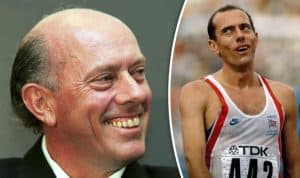Kasey Kahne at a Glance
- Net Worth (2025): $50 Million
- Profession: Team Owner, Professional Racing Driver
- Date of Birth: April 10, 1980
- Birthplace: Enumclaw, Washington, USA
- Nationality: American
Table of Contents
What is Kasey Kahne’s Net Worth?
Kasey Kahne has a net worth of $50 million. The former NASCAR superstar built this substantial fortune through a lucrative two-decade career in the Cup Series, high-value endorsement contracts, and his successful transition into team ownership with Kasey Kahne Racing (KKR).While his days of commanding an eight-figure NASCAR salary are behind him, Kahne remains a financial powerhouse in the motorsports world. His wealth is currently sustained by the operations of his World of Outlaws sprint car team, which has secured multiple championships, and his personal earnings from dirt track racing. Unlike many athletes who retire and fade from the industry, Kahne reinvested his capital into the sport’s grassroots level, establishing a self-sustaining business model that continues to generate millions annually.His financial portfolio is bolstered by career earnings that exceeded $70 million during his time in NASCAR, alongside a robust merchandise line and long-standing commercial partnerships with brands like NAPA Auto Parts.
NASCAR Salaries
During the peak of his career, specifically his tenure with Hendrick Motorsports (2012–2017), Kahne was among the highest-paid drivers in American motorsports. In 2017 alone, Forbes reported his earnings at $11.2 million, with a base salary and winnings totaling nearly $10 million. Even during his final full-time season with Leavine Family Racing in 2018, he commanded a salary significantly higher than the series average due to his veteran status and marketability.
Kasey Kahne Racing
The primary engine of Kahne’s current wealth is Kasey Kahne Racing (KKR). Established in 2005, the team competes in the World of Outlaws Sprint Car Series and has evolved into a dynasty. With top-tier driver Brad Sweet behind the wheel of the KKR No. 49 car, the organization captured consecutive championships from 2019 through 2023. These victories bring substantial purse money, performance bonuses, and merchandise revenue, solidifying KKR as a highly profitable asset in the racing industry.
Early Life
Born in Enumclaw, Washington, Kasey Kenneth Kahne was raised in a family deeply embedded in the Pacific Northwest racing culture. His father, Kelly Kahne, owned a trucking company and supported Kasey’s early interest in mechanics and speed.Kahne began his racing journey at age 17 in open-wheel sprint cars, quickly distinguishing himself on dirt tracks across Washington and California. He bypassed the traditional local stock car route, opting instead for the intense, high-speed education of the United States Auto Club (USAC). By 2000, he had won the USAC National Midget Series championship, a feat that caught the attention of national scouts and set the stage for his move to the paved ovals of NASCAR.
Career
Kasey Kahne’s professional trajectory is defined by his meteoric rise as a rookie sensation and his longevity as a fan favorite. His transition from open-wheel racing to stock cars began in the NASCAR Busch Series (now Xfinity Series), where he drove for Asey-Lewis Racing and later Braun Racing. His talent was undeniable, leading to a high-profile recruitment by Ray Evernham.In 2004, Kahne replaced the legendary Bill Elliott in the No. 9 Dodge for Evernham Motorsports. His rookie season in the Nextel Cup Series was nothing short of spectacular. Although he narrowly missed multiple wins, finishing second five times, he captured the Rookie of the Year honors and revitalized the fanbase for Dodge. He secured his first career Cup victory in 2005 at Richmond International Raceway.The 2006 season marked Kahne’s arrival as a genuine title contender. He won six races, the most of any driver that year, establishing himself as a top-tier talent. Following a corporate transition where Evernham Motorsports eventually merged into Richard Petty Motorsports, Kahne made a bold move to Red Bull Racing Team in 2011.
While the tenure was short, he delivered the team’s first and only victory at Phoenix.Kahne’s career reached its prestige peak in 2012 when he joined Hendrick Motorsports, the New York Yankees of NASCAR. Driving the famous No. 5 Chevrolet, he won the Coca-Cola 600 for the third time and remained a consistent playoff contender. His tenure at Hendrick produced six wins, including a crown jewel victory at the Brickyard 400 in 2017.Health issues, specifically chronic dehydration and heat exhaustion, began to plague Kahne toward the end of his Cup Series tenure. After moving to Leavine Family Racing in 2018, the physical toll of the grueling stock car races forced him to retire from full-time NASCAR competition. However, this was not the end of his driving career. He returned to his roots, competing in the World of Outlaws and High Limit Racing series, proving that his skills on dirt remained elite.
Real Estate
Kahne has historically held significant property assets in North Carolina, the hub of American auto racing. For years, he owned a sprawling 19-acre estate in Mooresville, North Carolina. The property featured a 5,000-square-foot residence, a guest house, and extensive equestrian facilities. He sold this property for approximately $2.2 million as he restructured his assets following his retirement from the Cup Series.Currently, he maintains a residence and a state-of-the-art shop facility for Kasey Kahne Racing in Mooresville. This facility is not just a garage but a commercial headquarters that houses the engineering and logistics operations for his multiple sprint car teams.
Personal Life
Kahne is a dedicated father to his son, Tanner, born in 2015. He frequently shares moments of Tanner’s growing interest in racing, often bringing him to dirt track events.His retirement from NASCAR was precipitated by a serious medical condition. During long races in closed cockpits, Kahne suffered from extreme heat exhaustion that prevented his body from regulating its temperature and hydration. Despite extensive testing and training adjustments, doctors advised him that continuing to race in stock cars posed a severe long-term health risk. The open cockpit and shorter duration of sprint car races allow him to compete safely, managing the condition effectively.





